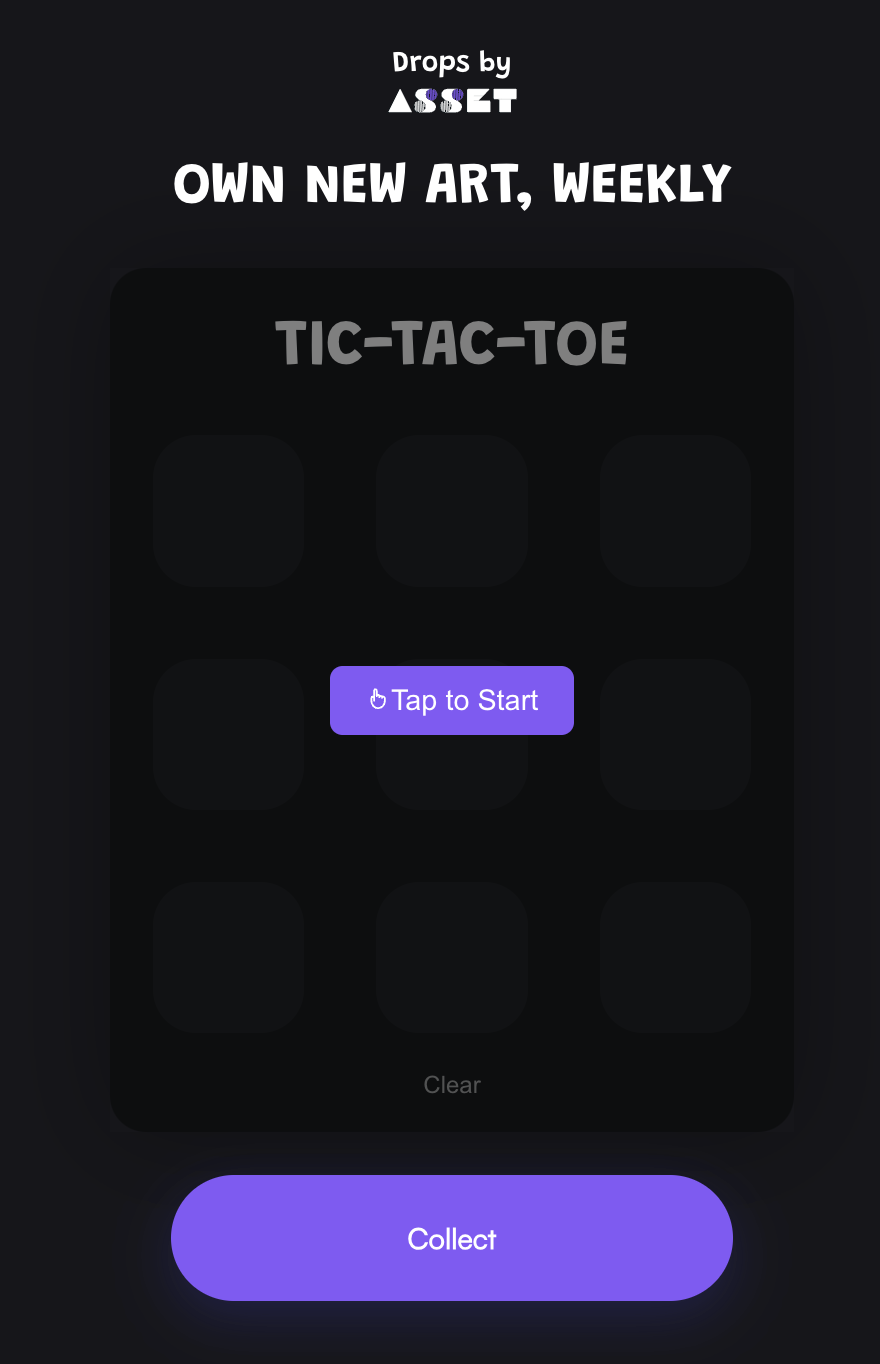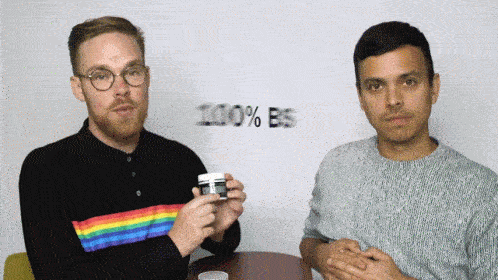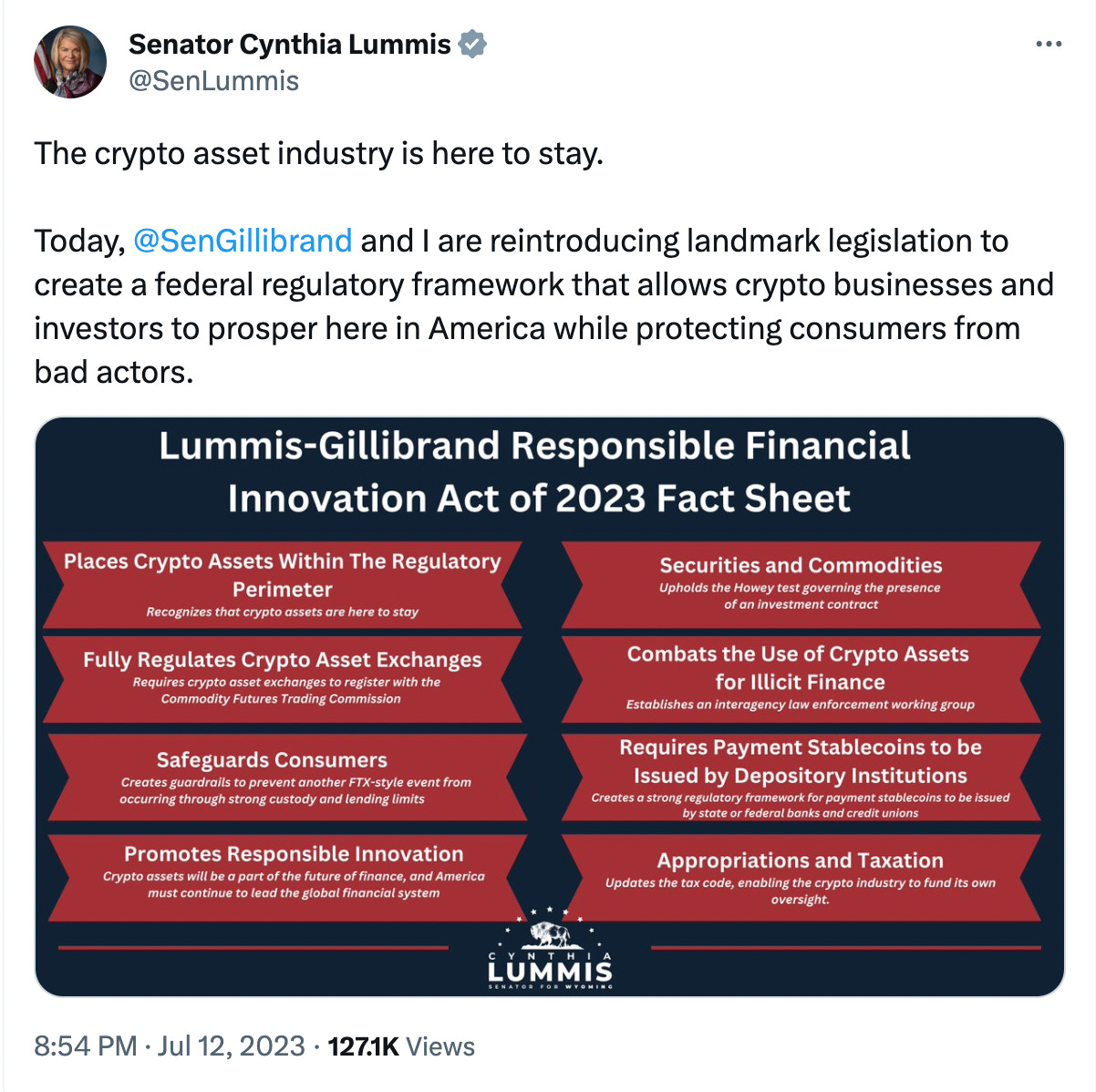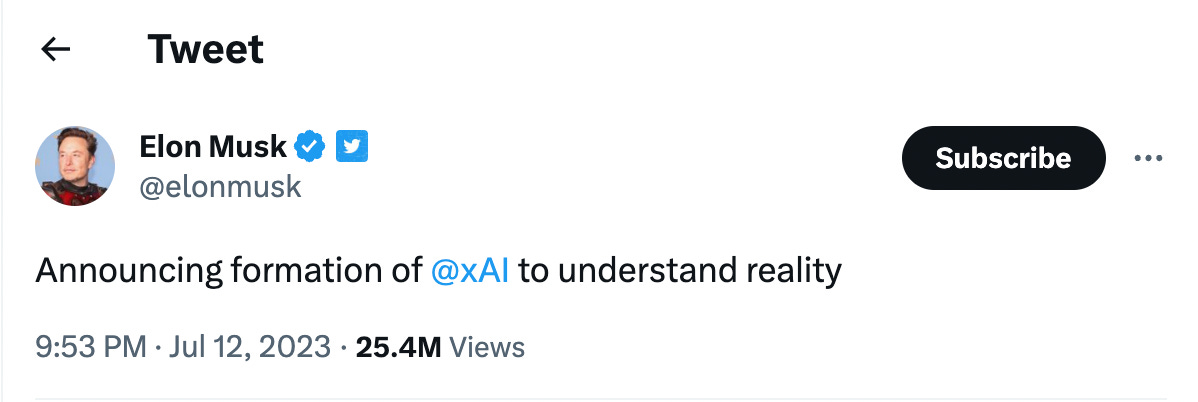Killin' them crypto myths 🧟
Chainalysis debunks popular crypto myths in new report. US Government Preparing to sell Silk Road Bitcoin again? Google to allow Android games and apps to offer NFTs. Elon Musk and xAI.
Hello, y'all. You know you can own a game of tic-tac-toe? Thank them folks at Asset. Claim. Claim. Collect. Collect. Now - here.
Give your books a »» Muzify «« spin? This is The Token Dispatch, you can hit us on telegram 🤟
It's time to debunk some of the wildest myths floating around the digital currency realm.
For reals?
A new report from Chainalysis aims to set the record straight and show why your favourite crypto myths have no basis in reality.
Let’s understand crypto better. Together.
Crypto ≠ gambling
Crypto is like gambling. Roll the dice! Or not. Contrary to popular belief, crypto investments are not a roll of the dice. DeFi has shown us the power of smart contracts, enabling faster and simpler lending practices. In fact, it's not hard to imagine a future where traditional loans, like mortgages, take place on the blockchain, eliminating unnecessary hurdles. While speculation does play a role in the crypto world, many investors balance their memecoins with more serious investments.
Crypto ≠ lawless land
Governments worldwide have been working diligently to bring digital assets under their regulatory umbrellas. From tackling money laundering to protecting consumers and ensuring market fairness, countries are taking steps to provide clear guidelines. The Financial Action Task Force (FATF) has issued global standards, prompting countries like Singapore, South Korea, Australia, and the United States to implement their own regulations. And UK has MiCA.
Speculation ≠ entire market
Although speculation has played a role in the growth of crypto markets, it is important to note that it is not the sole driving force. Many investors hold a diverse portfolio, balancing meme coins with more serious investments, similar to how traditional investors may own shares of both Apple and GameStop.
Crypto is for everyone
Purchasing and trading crypto doesn't require you to be a technology whiz. Just like you don't need to understand the ins and outs of the SWIFT system to make an international bank transfer, you can dip your toes into the crypto waters without diving deep into the technical aspects. As long as you use trusted sources and find reliable information, you'll be on your way to navigating the crypto universe like a pro.
Crypto ≠ just for criminals
Another myth that needs debunking is the notion that crypto is primarily used by criminals. In reality, blockchain technology has been instrumental in aiding criminal investigations and increasing transparency. Blockchain analysis tools help crypto organisations comply with anti-money laundering rules, leading to successful crackdowns on illicit activities. Law enforcement agencies have seized over $10 billion in funds through digital asset investigations. Far from being anonymous, the blockchain has become a transparent financial system.
Transparency and growth
Contrary to popular belief, crypto is not anonymous and untraceable. Bitcoin, for example, is designed to be traceable, with transactions tied to specific wallet addresses. The blockchain provides a transparent and democratised financial system, recording all transactions in a public ledger.
Crypto passing fad
Cryptocurrency is here to stay, and it's far from being a passing fad. With a global market cap of $1.18 trillion, it's clear that digital currencies have evolved into a thriving ecosystem.
"Additionally, governments are now implementing or investigating the feasibility of blockchain-based central bank digital currencies (CBDCs), as well as providing regulatory clarity for existing cryptocurrency. Of 45 countries that the Atlantic Council studied, nearly three-quarters are in the process of making substantial changes to their regulatory framework for crypto."
Transaction volume is soaring, and the raw number of transactions happening in the crypto space is higher than ever.
So, let's put these myths to rest and embrace the reality of the crypto world—a world of innovation, accessibility, transparency, and continued growth.
TTD Silk Road 🤫
US Government is moving the Silk Road Bitcoin stash again.
The Department of Justice crypto wallets transferred a whopping $300 million worth of BTC to new addresses in three separate transactions on July 12.
For those unfamiliar with the backstory, the US government has been holding onto Bitcoin seized from criminals, often utilising these funds for various purposes. In the past, they have moved the Bitcoin intending to sell it, but not always. This recent movement of the Silk Road Bitcoin stash is believed to be a result of their largest seizure to date.
In November 2021, law enforcement confiscated a staggering $3.36 billion worth of BTC after hacker James Zhong admitted to stealing digital assets from the notorious Silk Road marketplace.
Since then, the government has been gradually selling off the seized cryptocurrency. In March, they sold $215 million worth of the "digital gold" and announced plans to sell another $1.1 billion.
Silk Road, for those unfamiliar, was an online black market that primarily facilitated the illegal sale of drugs until it was shut down by authorities in 2014. James Zhong, the hacker involved, pleaded guilty to wire fraud last year, revealing that he had manipulated the Silk Road transaction system in 2012 to pocket a staggering 50,676 Bitcoins. He managed to keep this stash hidden for a decade, allowing its value to soar to an impressive $3.3 billion.
The recent movements of the government-controlled wallets involved a total of 9,825 Bitcoins, equivalent to a value of $301 million at current prices.
The crypto community has its eyes glued on major BTC holders like the US government because their actions can have a significant impact on the price of the asset. Previous movements or even rumours of movements have caused the price of Bitcoin to plummet.
TTD Regulation 📮
A group of 21 organisations, including the American Economic Liberties Project and the Center for American Progress, have signed a letter opposing a crypto bill currently being deliberated by the U.S. House Financial Services Committee.
The lobbyists argue
"While other tech has proven its usefulness many times over, crypto's big moment is always just over the horizon.”
The letter argues that the bill, supported by Rep. Patrick McHenry, would weaken consumer and investor protections. It highlights concerns such as underfunding and overloading of the Commodity Futures Trading Commission, weaker regulatory requirements for crypto asset issuers, and a potential rewrite of the U.S. Securities and Exchange Commission's mandate. The bill has divided the committee, with Rep. Maxine Waters and Rep. Brad Sherman opposing it.
Senators' point
Senators Cynthia Lummis and Kirsten Gilibrand are renewing their efforts to pass a bill to regulate the digital asset sector. Lummis, known as the "Bitcoin senator," announced on CNBC that they are pushing for an updated version of a crypto regulation bill they co-sponsored last year.
"It’s important to move ahead when we see so much more integration of digital assets in our economy," she said.
The bill includes registration requirements for crypto exchanges and divides regulatory responsibilities between different agencies. This comes as the industry faces regulatory challenges, with the SEC launching lawsuits against Binance and Coinbase. However, there have also been positive developments, such as BlackRock filing for a Bitcoin exchange-traded fund. The proposed bill aims to address these challenges and opportunities.
TTD Play 🟢
Google Play announced a policy update on July 12, opening its doors wider to blockchain-based transactions.
Google will now allow Android games and apps on the Play Store to offer NFTs.
Why? to provide a safe and trusted experience for blockchain gaming and digital collectibles.
Joseph Mills, Group Product Manager at Google Play, shared the platform's goals in an announcement on the Android Developers Blog. He stated that the aim is to support developers in bringing innovative ideas to life and to enable new ways of transacting blockchain-based digital content within apps and games on Google Play.
Requirements
Developers must be transparent about tokenised digital assets in their games.
Disclosure of a game's blockchain status on the Play Store content page.
What you can do
Developers can use NFTs to unlock in-app content, regardless of where users purchased the NFTs.
Google embraces this feature, offering more flexibility for developers and users ( unlike 🍎).
What you cannot do
Wagering and sweepstakes are prohibited.
Enforces policies against promoting or glamorising crypto trading activities.
NFTs cannot be used for real-world monetary prizes or gambling activities.
Gradual rollout and collaboration
Google will gradually roll out the new policies, collaborating with select game developers for testing and iteration.
Firms like Mythical Games and Reddit are partnering with Google to refine and iterate NFT policies.
Apple's deal
Apple, has faced criticism for its in-app payment function that diverts 30% of gross sales to the company. Apple's policy has sparked backlash from users and vendors, leading to a legal battle with Epic Games. In contrast, Google Play's more favourable policy toward NFT monetisation is a welcome change for creators and buyers in the growing digital assets market.
TTD Musk 👊
Can’t keep Elon Musk quiet. Not for long. Not from launching shite.
This time, as expected he's stepping into the exciting world of AI with his brand-new company, xAI.
The internet went wild when the xAI website went live, accompanied by a flashy Twitter account with the handle @xAI.
Musk changed his own Twitter bio to showcase his involvement with the company.
What does that mean now?
The X.AI homepage didn't reveal much, either. All we got was a mysterious message: "Announcing xAI. July 12th, 2023."
The website lists a dream team of 12 talented individuals, including Musk himself, who has previously worked with AI giants like OpenAI, Deep Mind, Google Research, Microsoft Research, and even Tesla.
To answer everything, xAI is hosting a Twitter Space, where you can chat with the xAI team.
It's no surprise that Musk is delving into AI. He's been vocal about his thoughts on the technology, especially after OpenAI's ChatGPT made waves.
While details are scarce right now, the xAI website clarifies that they are a separate entity from Musk's X Corp. However, they're eager to collaborate with X, Tesla, and other companies to make some serious progress.
xAI is joining the ranks of Tesla, Twitter, SpaceX, Neuralink, and Boring Company.
TTD Surfer 🏄
The CEO of Dapper Labs announced 51 colleagues’ departure amid the second layoff round within a year.
The Blockchain Council of the Philippines (BCP) has teamed up with the Department of Information and Communications Technology (DICT) to promote the adoption of Web3 technology in the country.
FTX bankruptcy lawyers are seeking recovery of $323.5 million from FTX Europe leadership.
If you like us, if you don't like us .. either ways do tell us✌️
If you dig what we do, show us some love on Twitter & Instagram🤞
So long. OKAY? ✋













